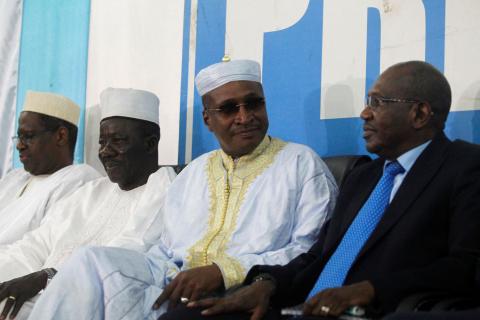Advertisement
Mali candidates allege poll fraud ahead of result
BAMAKO (Reuters) - Fifteen Malian opposition candidates demanded on Wednesday that the government investigate what they said was fraud in Sunday's presidential election, which was beset by armed attacks and problems with the distribution of voting cards.
No election results have yet been published by Mali's Ministry of Territorial Administration, the only body that can legally do so. But two rivals of President Ibrahim Boubacar Keita already claim to have made it into a second round.
Keita's allies say he is well ahead in the poll, which two dozen people contested, but have not ruled out the possibility of a run-off if he does not get the required 51 percent.
Soumaila Cisse, seen as the strongest challenger, and Aliou Diallo both say they have enough votes to face Keita in round two.
A statement from 16 candidates -- from which one later dissociated himself -- complained of a huge number of electoral cards being picked up the wrong people, open vote buying, ballot box stuffing, fraudulent use of voter cards that were never picked up and unfair use of state media for Keita's campaign.
This was Mali's second presidential election since a 2012 coup enabled Tuareg rebels and allied Islamist fighters to take over the north, prompting French forces to intervene the following year to push them back.
Suspected Islamist gunmen have relentlessly tried to disrupt the poll in the parts of north and central Mali where they hold sway. Armed attackers shut down 644 polling stations, representing about 3 percent of the total, on the day. A fifth of all polling stations suffered some kind of disruption, figures from the Ministry of Territorial Administration showed.
Gunmen attacked a convoy carrying election materials in central Mali late on Tuesday and four soldiers and eight of the assailants were killed, a Defence Ministry spokesman said.
European Union observers have raised issues about pour training of electoral officials and failure to follow the law in handing out ID cards. African observer missions have declared the electoral process satisfactory so far.
Among opposition demands -- mirroring a similar call from the EU -- was that the government publish the names of all the polling stations in which insecurity prevented the vote from happening at all.
The jihadists have targetted foreign and local interests in Mali, taken hostages and attacked security and peacekeeping forces over the past several years.
That unrest is in the forefront of foreign policy concerns for France -- the former colonial power and still a leading business partner -- as well as a worry to other Western nations and Mali's neighbours.
(Editing by Angus MacSwan)



















Add new comment